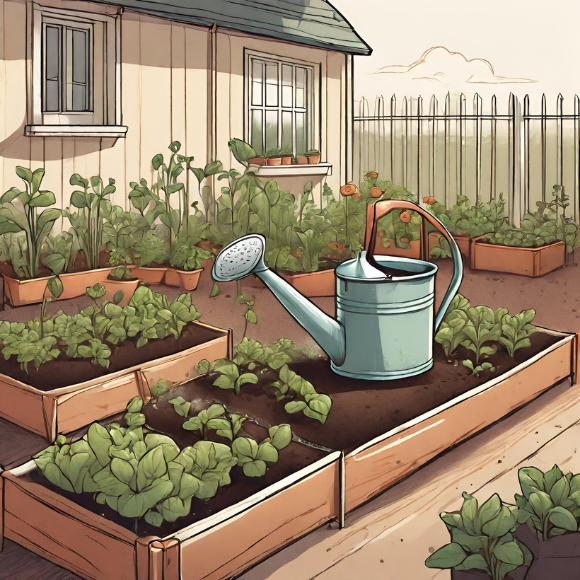
A well-maintained garden is a productive garden. This chapter guides you through the various aspects of garden maintenance that will ensure your plants thrive and your harvests are plentiful.
WATERING YOUR GARDEN
Watering is vital for plant health. Here are some key factors to keep in mind:
- Frequency: This depends on weather and soil type. Your plants need more water in hot, dry weather and less in cool, wet conditions.
- Method: Water at the base of the plant to get to the roots directly. Avoid wetting the leaves to prevent diseases.
- Time: The best time to water is in the early morning when evaporation rates are low.
WEEDING AND MULCHING
Weeds compete with your plants for nutrients and water, so regular weeding is essential. Mulching your garden can help suppress weeds and maintain soil moisture.
- Weeding: Regularly inspect your garden and remove any weeds you find.
- Mulching: Spread a layer of organic material, such as straw or wood chips, around your plants. This helps suppress weeds, retain moisture, and add nutrients to the soil as it breaks down.
PEST AND DISEASE MANAGEMENT
A healthy garden is less susceptible to pests and diseases. If they do occur, early detection and management are key.
- Observation: Regularly inspect your plants for signs of pests or disease.
- Natural Pest Control: Use methods like introducing beneficial insects, using traps or barriers, or planting pest-repelling plants.
- Organic Treatments: If necessary, use organic sprays or treatments to manage pests and diseases.
PRUNING AND HARVESTING
Pruning and harvesting not only yield delicious produce but also keep your plants healthy and productive.
- Pruning: Regularly prune your plants to promote airflow, remove dead or diseased material, and encourage productive growth.
- Harvesting: Regular harvesting encourages more production. Always use sharp, clean tools to make clean cuts.
END-OF-SEASON CARE
As your gardening season comes to an end, some cleanup and preparation for the next season can make a significant difference.
- Cleanup: Remove all spent plants and compost them unless they were diseased.
- Soil Care: Consider adding compost or other organic matter to replenish the nutrients consumed during the growing season.
- Planning: Make notes about what worked and what didn’t in your garden. This information is invaluable when planning for the next season.
In the next chapter, we’ll talk about the joy of harvesting and some exciting ways to use and preserve your bounty.


